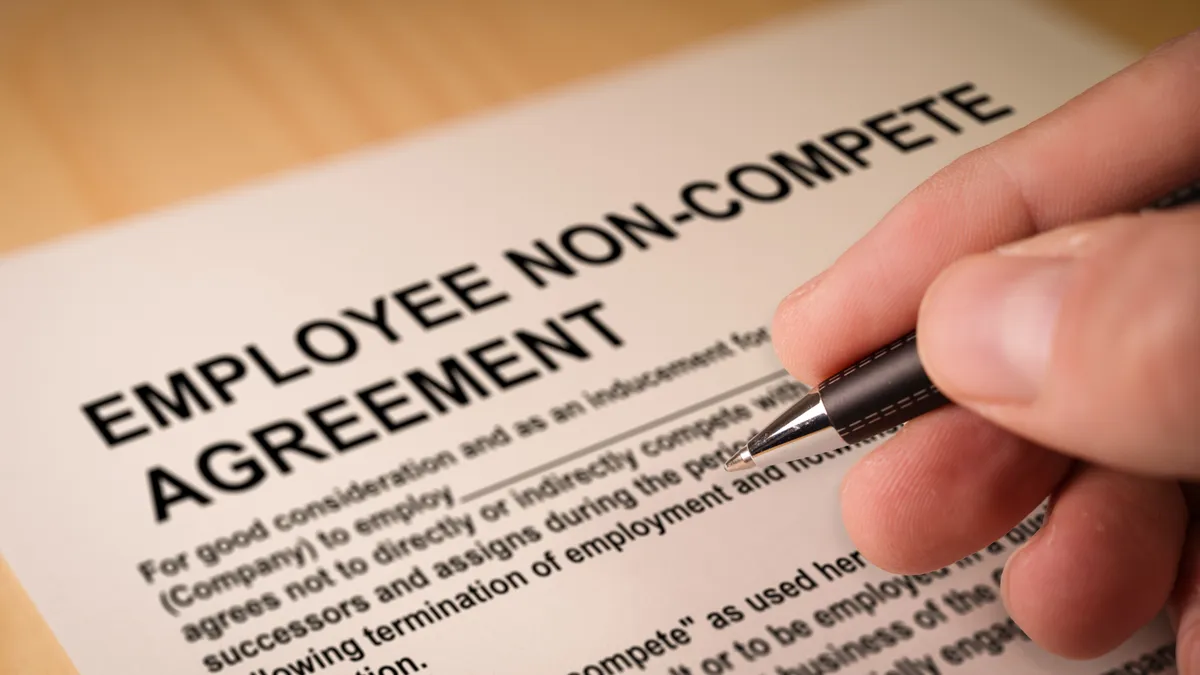In the light of the sharp focus the federal government and a growing number of states have placed on noncompetes, many employers have reexamined their use of that type of contractual clause in employment agreements.
Baker McKenzie Partner Barbara Klementz said she is advising businesses to also scrutinize the noncompetes that they include in employees’ equity award agreements.
Her recommendation comes amid a pending Federal Trade Commission proposal to ban noncompetes, though Klementz said it would be premature for companies to stop using the contractual clauses altogether.
Tailor agreements
Noncompetes in equity award agreements are often seen in the finance and pharmaceutical industries, among others, and they can be another tool for ensuring employee compliance with such clauses.

Klementz, chair of Baker McKenzie’s North American Compensation Practice, said her top piece of advice for companies is to make sure they don’t take an “overbroad” approach to imposing noncompetes on employees in the equity award context.
She said noncompetes in such agreements can be reasonably applied to executives and other higher-level employees as opposed to wide swaths of workers.
“I think the FTC has shown it is very focused on preventing these being imposed on people who have very little negotiation power in the employment relationship,” Klementz said. “We think that the same might not be true for the top executives.”
Additionally, she recommends companies be thoughtful about the time period noncompetes in equity award agreements cover and ensure the types of situations they apply to are objectively reasonable.
For example, having noncompetes that apply to employees departing for peer companies within a limited time frame is more defensible than listing a wide array of businesses across sectors that executives would be restricted from joining for an extended period.
In regard to the time frames for noncompetes, it used to be the case that a two-year restricted period was fairly standard, according to Klementz.
She said that given new laws in some states and outside the country, it is becoming more common to see a maximum one-year or even six-month restricted period, depending on the location of the employee and the circumstances.
“You can't have noncompetes that are completely out of whack with what you're trying to do, which is to protect your trade secrets,” said Klementz, who is based in San Francisco.
State-specific clauses
The growing number of states seeking to prohibit or limit the use of noncompetes in the employment context also presents challenges for employers.
For example, Minnesota recently approved a noncompete ban and New York is moving toward doing the same as legislation awaits the governor’s signature.
Klementz said employers should craft noncompetes in equity award agreements to align with the state where an employee resides and works.
She noted these types of determinations about which state law should apply have become more difficult in recent years amid widespread remote work that took hold during the COVID-19 pandemic and has persisted in many industries.
But Klementz said that while California used to be the primary U.S. jurisdiction where employers would need to tailor noncompetes, businesses in the last three to four years have grown used to doing so for other states.
“I would say that is a real change in the market,” she said.
Judicious approach
Klementz said it’s clear from her work with global companies that they want to ensure their noncompetes are enforceable, so they have taken seriously the need to refine them.
Overall, she described these clients’ approach to noncompetes in equity award agreements as “relatively judicious,” especially among more sophisticated companies.
“We are seeing that many companies have already done a good job creating noncompetes that were reasonable in scope – in fact, we find ourselves suggesting very few changes to existing noncompetes, even after reviewing them this year with these things in mind,” Klementz said.











